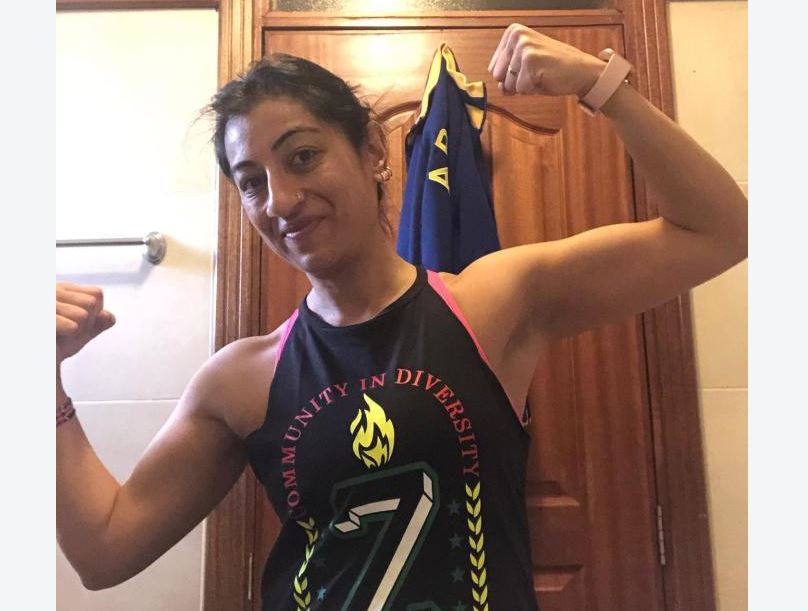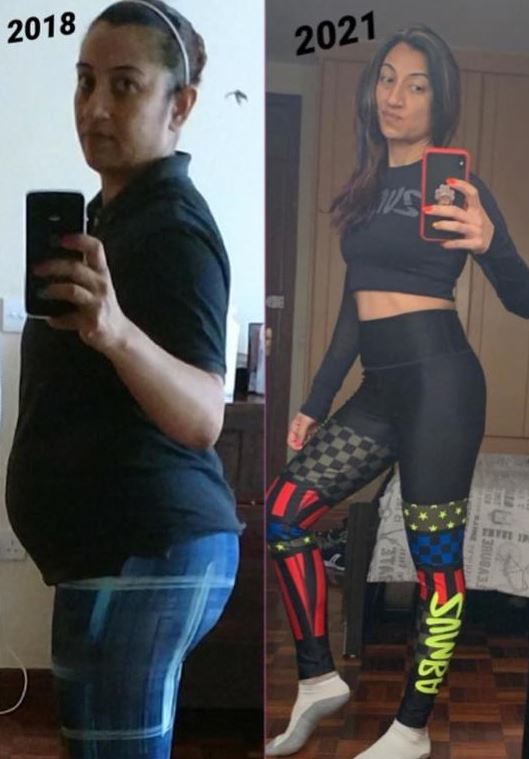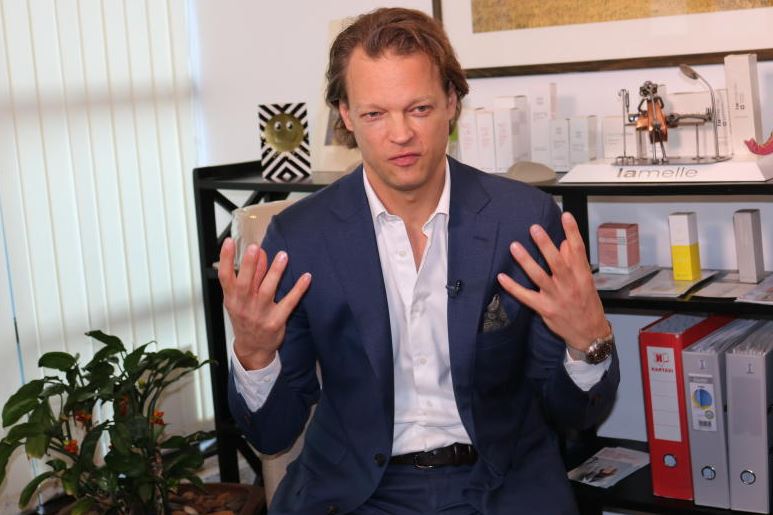
If you met Faith back in the day, you would not think there was anything wrong with her at first glance. On a second look, you might have noticed that she had much bigger breasts than most women. What you might not have realised was how much physical and emotional pain they brought her.
Her mind was affected much earlier, but serious back and shoulder problems began as a newlywed in 2013.
“Before I realised it (the problem) was the breasts, I used to have issues even at night. He (her husband) was the one who used to wake up most of the time to massage my back and shoulders,” she says.
She spent a lot of money on physiotherapy and medicine, using 70 per cent of a Sh180,000 insurance card on back and shoulder issues alone and yet, they barely helped.
Emotionally, there was no recourse for her. She had long resigned herself to struggling to find bras that properly fit, constantly self-conscious about what she looked like, trying to hide them on dates and impeding the one thing she loved doing – swimming, which she does three times a week.
“You can imagine in campus you can experiment with dressing, but in my case, I could not. I did not know there was anything I could do about it.”
In 2019 she came across a lady by chance on YouTube who was talking about the things she had gone through as a result of having large breasts.
The lady had undergone breast reduction surgery to resolve it and Faith finally realised it was an option. She did research on what it entailed and then began the journey of looking for a plastic surgeon.
Aarti Khimji is a Zumba instructor by profession, so being and looking in top physical form is integral to her career. She had always been a lean 53 or 54 kgs, but when she got pregnant, the first time her weight ballooned by over 40 kgs, and during her second pregnancy, she gained a whopping 55kgs.
“It is the hardest thing. Adding weight is not comfortable. I have been there and I know that I did not appreciate myself in that skin because it was very uncomfortable,” she says.
“Just getting out of bed, doing simple things like turning on the bed. Just different positions. You feel very uneasy, you do not feel comfortable and you are not even as active as you used to be. The body has just slowed down because of all that weight.”

She says that as a Zumba instructor, she had to prove to people that it works. “So I had to lose the weight first in order to teach and be comfortable in the way I look.”
She successfully lost all the weight over three years, but then she had a new problem to contend with – loose skin on her belly. She also had diastasis recti, which is a separation of the abdominal walls.
“It left me with a bulge in my stomach, and that is only because both my children were four and a half kilos at birth….I did try every exercise, but it failed to get rid of saggy skin, which led me to this avenue of surgery,” she says.
Both Khimji and Faith ended up finding Dr Tilman Stasch, an aesthetic, plastic, reconstructive and hand surgeon. He has been in the field of plastic and reconstructive surgery for 15 years, practising in the UK and in Germany and, for the last 10 years, Kenya.

He explains that though it forms the bulk of his work, plastic surgery is not just aesthetic surgery like tummy tucks, breast reductions, breast augmentations, liposuction and facelifts.
It is also about reconstructive surgery, which includes congenital conditionals like a cleft lift or abnormalities of development in the face or the body and reconstruction of soft tissues after one suffers chronic wounds, burns, scars or keloids.
The majority of his patients are women, but he also gets men coming in. The most common question he gets is, “Can I shape my body?”
“I do liposuction or liposculpture, which may include removing fat from areas where you do not want to have it or where the gym does not shift the fat or the fatty deposits, and then sometimes also using that fat to shape other body parts like the buttocks or the hips, giving you a feminine shape. We call that the Kenyan butt-lift because we are in Kenya, not in Brazil. Other people know it as the Brazillian butt lift. It’s one of the most common procedures,” he says.
The second most common procedure in his clinic is breast surgery, while the tummy tuck, usually part of a mummy makeover, is the third most sought-after.
One can also have a body lift after massive weight loss, which leaves one with a lot of loose skin. It is an all-round procedure that includes a buttock lift, tummy tuck, thigh lift, arm lift, breast lift and so forth.
Khimji’s tummy tuck was a two-hour procedure. After the surgery, because she was already fit, following the doctor’s advice of eating well and working out very gradually, within six weeks she was able to return to teaching her Zumba classes.
“Breast reduction is not a cosmetic procedure. We treat it as a reconstructive option because majority of the people who come to us wanting a breast reduction have large breasts they tend to affect their posture; they will cause back and shoulder pain, even shoulder dislocation,” says Dr Dorsi Jowi, a plastic reconstructive and aesthetic surgeon at Kenyatta National Hospital.
Breast surgeries are the most sought-after procedures in Kenya, and a lot of the time it is because of gigantomastia, which is excessive growth of the breasts. In addition to physical issues, it also causes self-esteem issues for the women who suffer from it. Contrary to common assumption, Dr Jowi explains that the issue cannot be resolved with exercise.
“Exercise does not help with gigantomastia. This is hypertrophy of the breast tissue. So the breast tissue in itself is already enlarged. There is breast tissue and the fatty tissue around the breast,” she says.
Breast reduction surgery is usually life-changing for the people who get it, like Faith.
“When I woke up from my surgery, I felt light… After that my life changed. I can wear anything I want, even buy nice swimsuits. When exercising, my breasts are not jumping up and about, I feel confident, comfortable,” she says.
“There has been a big relief on my shoulders. I cannot even explain. I have been feeling so good. I can work without getting tired. I used just get so tired when I just do a few things. But now I do not get tired. I feel energized and happy.”
Both Dr Stasch and Dr Jowi, however, say that it is crucial to ensure the procedure is done by a qualified practitioner, a board-certified plastic surgeon.
Dr Jowi says that there are less than 30 qualified plastic surgeons in Kenya. Some people have had botched surgeries and have to go to a qualified plastic surgeon to try and correct the issue. “A lot of cases where we have had to do revisions are cases where people have gone to have surgeries done in facilities where the person doing the surgery is not a plastic surgeon,” she says.
“Make sure that your surgery is being done by a qualified plastic surgeon. You can check on the medical board (Kenya Medical Practitioners and Dentists Board) whether your plastic surgeon is qualified. There is also the Kenya Society of Plastic, Reconstructive and Aesthetic Surgeons.”
Faith’s surgery cost about Sh700,000, while Khimji’s cost between Sh700,000 and 900,000 in total. Insurance typically does not cover plastic surgery, so Khimji had to pay out of pocket.
In Faith’s case, her insurer refused to cover the costs, but her husband’s insurance approved it after reviewing her medical documents.
“We are trying to lobby for insurance to include breast reduction surgery. It is one of the conditions that they would cover because this is not cosmetic surgery, and a lot of the patients we are finding do not have the means to pay, but they require the surgery,” says Dr Jowi.
 The Standard Group Plc is a multi-media organization with investments in media
platforms spanning newspaper print
operations, television, radio broadcasting, digital and online services. The
Standard Group is recognized as a
leading multi-media house in Kenya with a key influence in matters of national and
international interest.
The Standard Group Plc is a multi-media organization with investments in media
platforms spanning newspaper print
operations, television, radio broadcasting, digital and online services. The
Standard Group is recognized as a
leading multi-media house in Kenya with a key influence in matters of national and
international interest.
